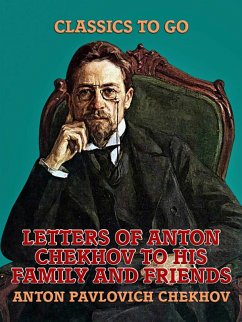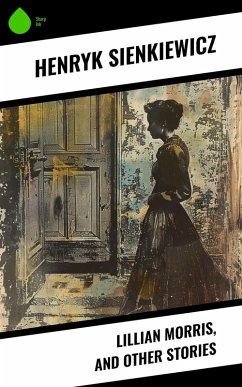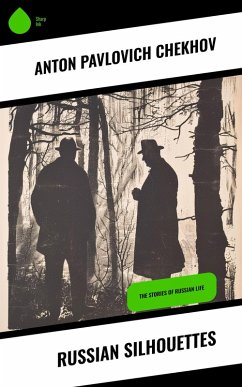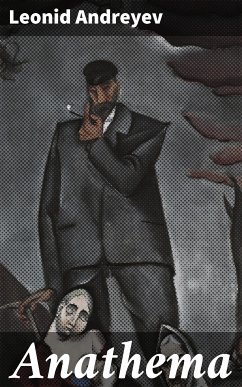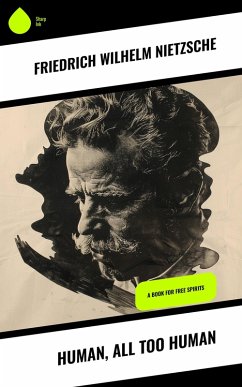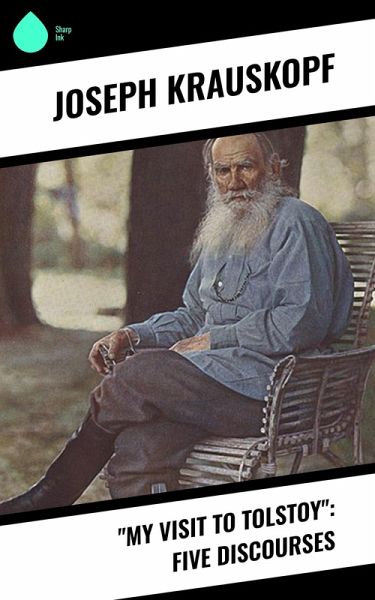
"My Visit to Tolstoy": Five Discourses (eBook, ePUB)
Versandkostenfrei!
Sofort per Download lieferbar
2,13 €
inkl. MwSt.
Weitere Ausgaben:

PAYBACK Punkte
0 °P sammeln!
In "My Visit to Tolstoy: Five Discourses," Joseph Krauskopf presents a profound exploration of the philosophical and spiritual reflections drawn from his encounters with the iconic Russian author, Leo Tolstoy. This work is characterized by its contemplative literary style, blending narrative with discourse to unravel themes of morality, faith, and the quest for meaning in human existence. Krauskopf's eloquent prose invites readers to delve deep into Tolstoy's insights, contextualizing them within the broader framework of 19th-century existential thought and the intellectual currents that perme...
In "My Visit to Tolstoy: Five Discourses," Joseph Krauskopf presents a profound exploration of the philosophical and spiritual reflections drawn from his encounters with the iconic Russian author, Leo Tolstoy. This work is characterized by its contemplative literary style, blending narrative with discourse to unravel themes of morality, faith, and the quest for meaning in human existence. Krauskopf's eloquent prose invites readers to delve deep into Tolstoy's insights, contextualizing them within the broader framework of 19th-century existential thought and the intellectual currents that permeated Tolstoy's own writings. Joseph Krauskopf, a noted rabbi and author, was deeply influenced by his commitment to social justice and ethical living, which resonates throughout his discourses. His reverence for Tolstoy stems from their shared interests in spiritual awakening and the ethical responsibilities humanity bears towards one another. Krauskopf's Jewish heritage and cultivated understanding of diverse philosophical traditions uniquely positioned him to interpret Tolstoy's thoughts for a broader audience, fostering a dialogue between faith and humanistic values. This book is highly recommended for readers interested in philosophy, literature, and ethics. Krauskopf's heartfelt and incisive interpretations of Tolstoy's ideas will inspire readers to reflect on their own lives and moral convictions, making it an essential addition to the library of anyone seeking to understand the interplay between literature and life.
Dieser Download kann aus rechtlichen Gründen nur mit Rechnungsadresse in A, B, BG, CY, CZ, D, DK, EW, E, FIN, F, GR, HR, H, IRL, I, LT, L, LR, M, NL, PL, P, R, S, SLO, SK ausgeliefert werden.




